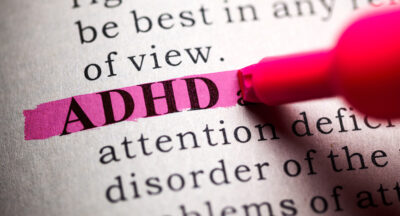
Taking Adderall for Focus — Why You Should Consider Alternatives
What is Adderall typically prescribed to treat?
Adderall is a prescription medication used to treat attention deficit hyperactivity disorder (ADHD) and narcolepsy. It is a stimulant that works by increasing the levels of certain neurotransmitters in the brain. While Adderall can be an effective treatment for ADHD, it is not without its problems. In this blog post, we will explore some of the problems associated with taking Adderall for focus and alternative treatments, including neurofeedback, diet, and non-stimulant medication.
What are some problems with taking Adderall for focus?
- Addiction and Dependence: One of the most significant problems with Adderall is the risk of addiction and dependence. Adderall is a Schedule II drug, meaning it has a high potential for abuse and dependence. Continued use of Adderall can lead to tolerance, meaning the body requires higher doses to achieve the same effects. This can quickly escalate into addiction, with withdrawal symptoms occurring when the drug is stopped.
- Side Effects: Adderall can cause a range of side effects, including insomnia, loss of appetite, anxiety, and headaches. More severe side effects can include heart
palpitations, high blood pressure, and even psychosis. Long-term use of Adderall can also lead to mood swings, aggression, and depression. - Misuse: Another problem with Adderall is that it is often misused by individuals who do not have ADHD. Adderall is sometimes used as a study aid by college
students or as a weight-loss aid by individuals looking to suppress their appetite. Misuse of Adderall can lead to addiction, dependence, and a range of health
problems. - Neurofeedback: Neurofeedback is a type of therapy that uses real-time feedback to train the brain to function more efficiently. During a neurofeedback session, sensors are placed on the scalp to measure brain activity. This activity is then displayed on a screen, allowing the individual to see their brainwaves in real-time. With guidance from a therapist, individuals can learn to regulate their brain activity and improve focus, attention, and other cognitive functions.
- Diet: Diet can play a significant role in improving focus and attention. A diet that is high in processed foods, sugar, and artificial additives can lead to inflammation and impaired brain function. On the other hand, a diet that is rich in whole foods, healthy fats, and protein can support brain function and improve focus. Foods that are particularly beneficial for focus and attention include fatty fish, nuts and seeds, and dark leafy greens.
- Medication: There are several alternative medications that can be used to treat ADHD without the same risks as Adderall. These medications include Strattera, Intuniv, and Kapvay. Strattera is a non-stimulant medication that works by increasing the levels of norepinephrine in the brain. Intuniv and Kapvay are both alpha-2 agonists that work by regulating the levels of neurotransmitters in the brain.
In conclusion, while Adderall can be an effective treatment for ADHD, it is not without its problems. Addiction, dependence, side effects, and misuse are all significant concerns associated with taking Adderall for focus. Fortunately, there are several alternative treatments available, including neurofeedback, diet, and medication. If you or a loved one is struggling with ADHD, it is important to work with a healthcare professional to determine the best treatment plan.
Related Posts
Treating ADD and ADHD Without Drugs: Cognitive Solutions Learning Center in Chicago Offers Non-Medicinal Alternatives
Cognitive Solutions Learning Center, a Chicago based clinic, offers a specialized...
What is Neuropsychological Testing for Children, and How Can It Help?
In the realm of mental health and education, cognitive assessments play a pivotal...
Why an Executive Functions Coaching Important for Students Going Back to School
As kids return to school, they face an array of academic and social challenges...
How Do I Know I Need a Psychological Evaluation: Executive Functioning (Part 1)
There are several reasons a person might need a psychological evaluation....





